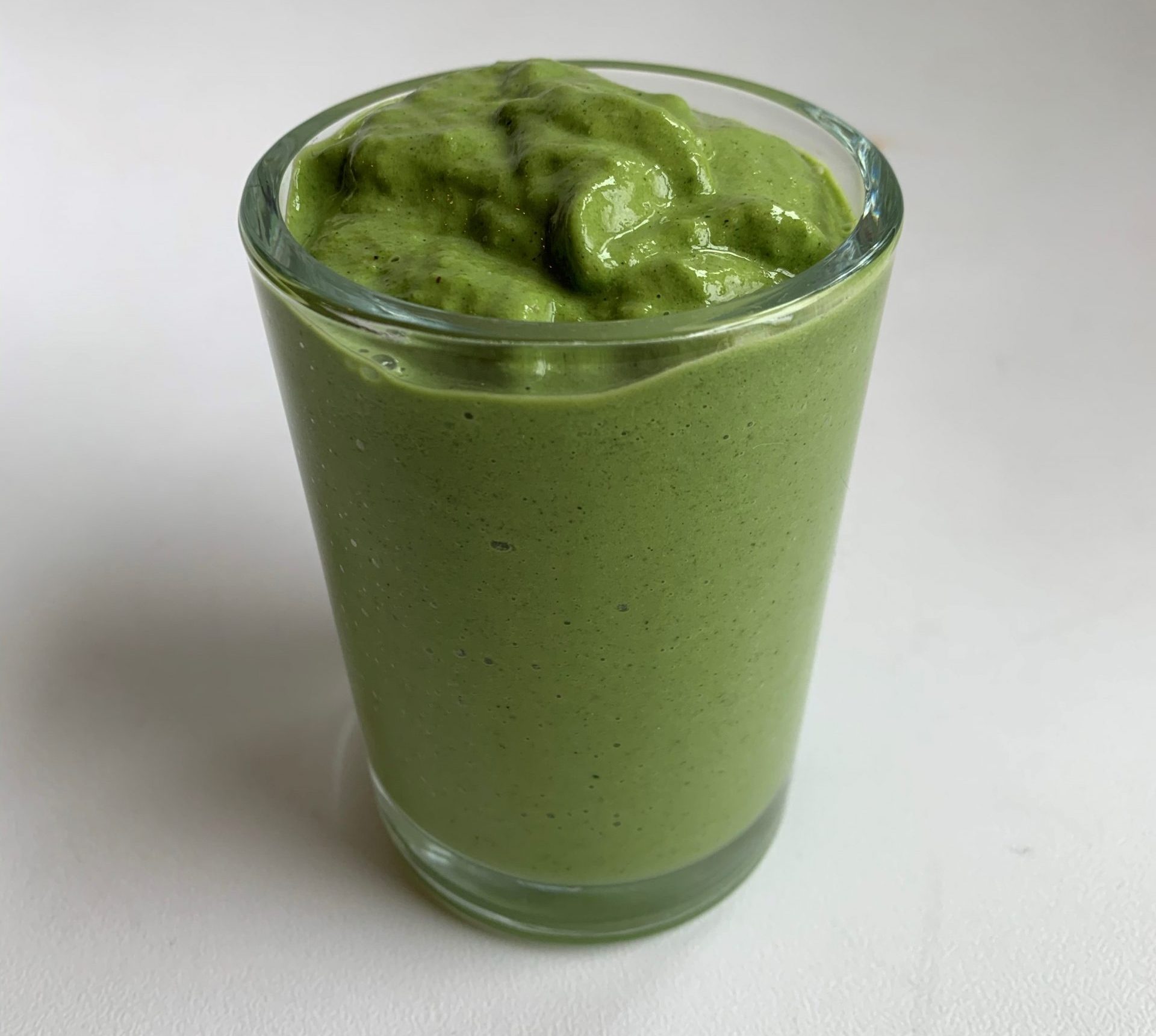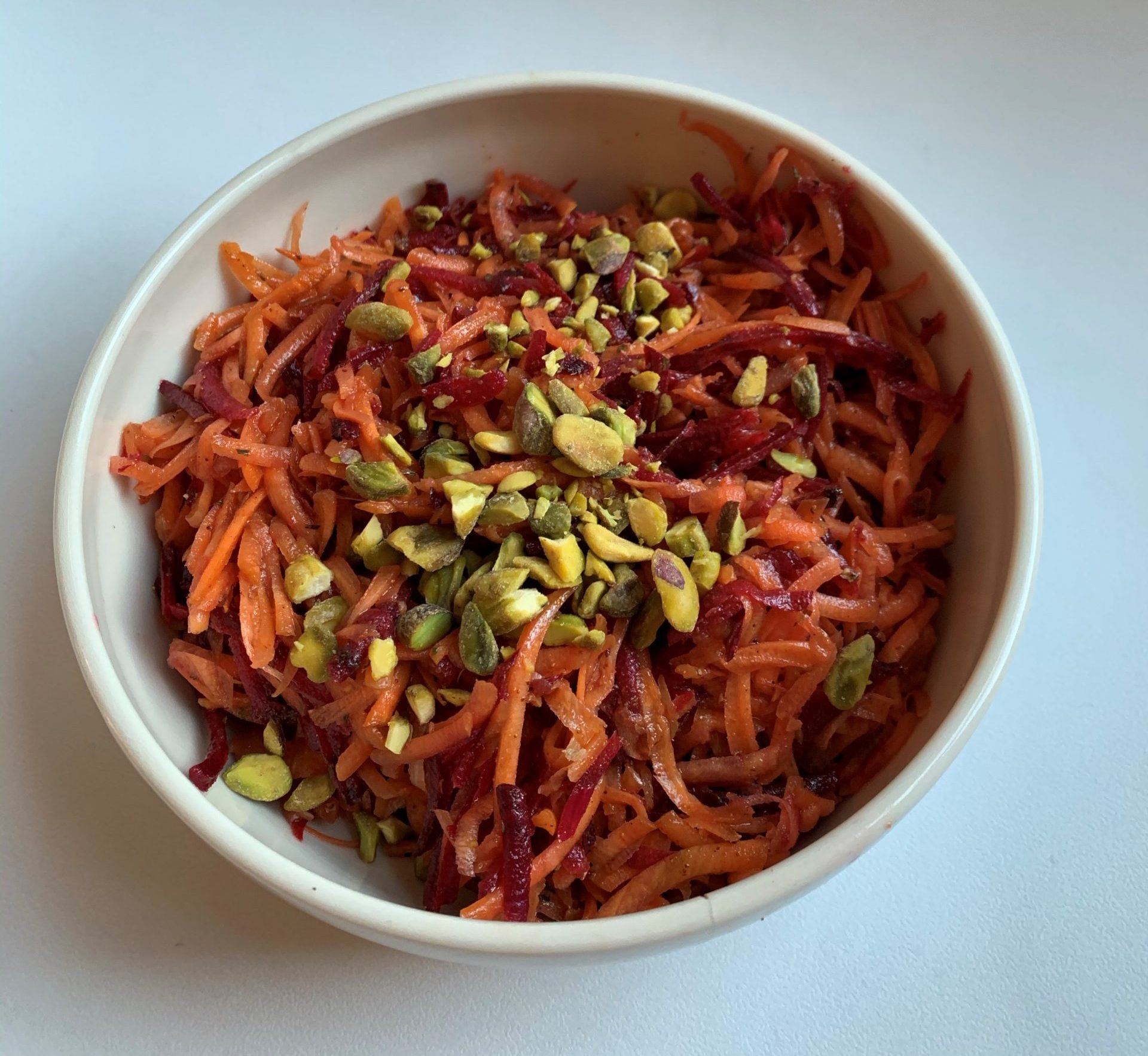
During this stressful time, first and foremost, we all need to be gentle on ourselves and our loved ones. In the face of the COVID-19 pandemic and social distancing measures, many people find themselves thrown out of their typical routines — both in life and with food.
Many of my patients have been curious about what they can do to support their immune systems during this stressful time. I think that this is a perfect moment to acknowledge that although food is vital, it is just one part of the equation, and to my knowledge, there is no one food or perfect diet that is guaranteed to ward off the coronavirus. Nourishment comes in many forms, both on and off the plate. When we’re stressed, the immune system’s ability to fight infections is reduced. Something as simple as a shared family meal can lower stress, enhance communication, and even reduce signs of depression and anxiety. For people who live alone, mealtimes may be a good opportunity to put on some soothing music, or to call or video-chat with a friend or family member.
Studies also show that the more people cook at home, the healthier their diet, so this change to your routine may already be giving your immune system a much-needed boost. My advice is to prioritize simple preparations over complicated meals, and to think about cooking a larger meal at least once per day to transform into leftovers for lunch or dinner the next day. This is the perfect time for a “cook once, eat twice” mentality.
I also highly recommend starting each meal with three long, slow, deep breaths into your belly. This simple practice will help to let your body know that you are safe and will trigger a switch from your sympathetic “fight or flight” nervous system (where most of us are spending a great deal of time these days) into your parasympathetic “rest and digest” mode. This will not only help you to better digest your meal, but will also punctuate your day with a few relaxed, mindful moments. If you want to extend this practice, you might consider inviting some gratitude into your thoughts for all the people and natural systems that allowed this nourishing meal to land on your table.
Certainly, our immune system requires adequate fuel and nourishment to fight disease. Figuring out ways to include colorful plants on your plate is especially vital now. Fruits and vegetables are high in vitamins C, A and phytonutrients that support immune health. Since trips to the grocery store may be less frequent and “go-to’s” may be harder to find, I recommend stocking up on long-lasting produce when you can find it, like apples, beets, carrots, radishes, winter squash, potatoes and sweet potatoes, onions and garlic. Dark leafy greens like kale and collards will last longer in the fridge than more tender lettuces and can always be used in soup or blanched and frozen if they start to wilt.
For a morning immune boost that sneaks in some colorful vegetables, try making a simple green smoothie:
 Tropical Green Smoothie
Tropical Green Smoothie
1 cup milk of choice or water
3 TBS hemp seeds
1/2 tsp grated fresh ginger
1 cup baby spinach, baby kale or chopped kale (can use frozen)
3/4 cup frozen mango or mix of mango and pineapple
½ cup frozen cauliflower
1/2 frozen banana
First blend liquid with hemp seeds and greens until you have smooth “green milk”. Then add other ingredients and blend on high until assimilated. Taste, and add more liquid if too thick, or more banana or mango if not sweet enough for your liking.
Notes: You can substitute 1/3 cup of Greek yogurt or ½ scoop of protein powder for hemp seeds. Hemp seeds have 10g protein per 3 TBS. Frozen kale or spinach can be used in place of fresh.
If you have difficulty keeping fresh produce on hand during isolation, frozen and canned are also great options. The nutrient content of frozen and canned vegetables and fruits rivals that of fresh, and in some cases may even be higher because the crops are harvested during peak ripeness. Canned and dried beans and peas are a wonderful source of protein, fiber and phytonutrients, and are a super healthy pantry staple during this time.
Fermented and cultured foods, like yogurt, kefir, kimchi, sauerkraut, tempeh, miso and lacto-fermented pickles, are also long-lasting in the fridge and are powerful boosters to your gut microbiome and your immune health. Recent research tells us that the bugs living in our guts play an important role in helping our bodies fight off infections. Eating fiber-containing whole foods, like vegetables, fruits, nuts, whole grains and beans, will ensure that the “good bugs” have plenty to eat and thrive.
Try this Carrot and Beet Salad for an easy, nutrient dense dish that keeps well in the fridge for several days:
Moroccan Grated Carrot and Beet Salad
Elise Bauer, Simply Recipes
 2 cups grated carrots (from about 3 large carrots)
2 cups grated carrots (from about 3 large carrots)
1 cup grated fresh beets (from about 1 medium, peeled beet)
1/4 cup raisins
1/2 teaspoon paprika
1/4 teaspoon ground cumin
1/4 teaspoon cinnamon
1/4 teaspoon salt
small pinch of cayenne (optional)
2 tablespoons fresh lemon juice (from 1/2 lemon)
2 tablespoons olive oil
1.5 teaspoons honey
2 tablespoons chopped fresh mint
2 tablespoons pumpkin seeds or pistachio nuts
Grate carrots into medium-sized serving bowl. Grate beets into a strainer and rinse briefly to wash away a little bit of the excess beet juice. Pat dry with a paper towel and add beets to carrots. Add raisins and stir to combine.
In a small bowl, whisk together the spices, salt, lemon juice, olive oil, and honey until well combined.
Drizzle dressing over carrots and beets, gently folding until carrots and beets are lightly coated.
Let sit for an hour before serving to allow dressing to soften vegetables. Taste, and season with additional salt and pepper if needed.
Before serving, stir in fresh or dried mint and top with pumpkin seeds or pistachios (if desired.)
Lindsay Keach Bronstein MS, RD, LDN, HC
Integrative Dietitian and Health Coach
Osher Clinical Center for Integrative Medicine










